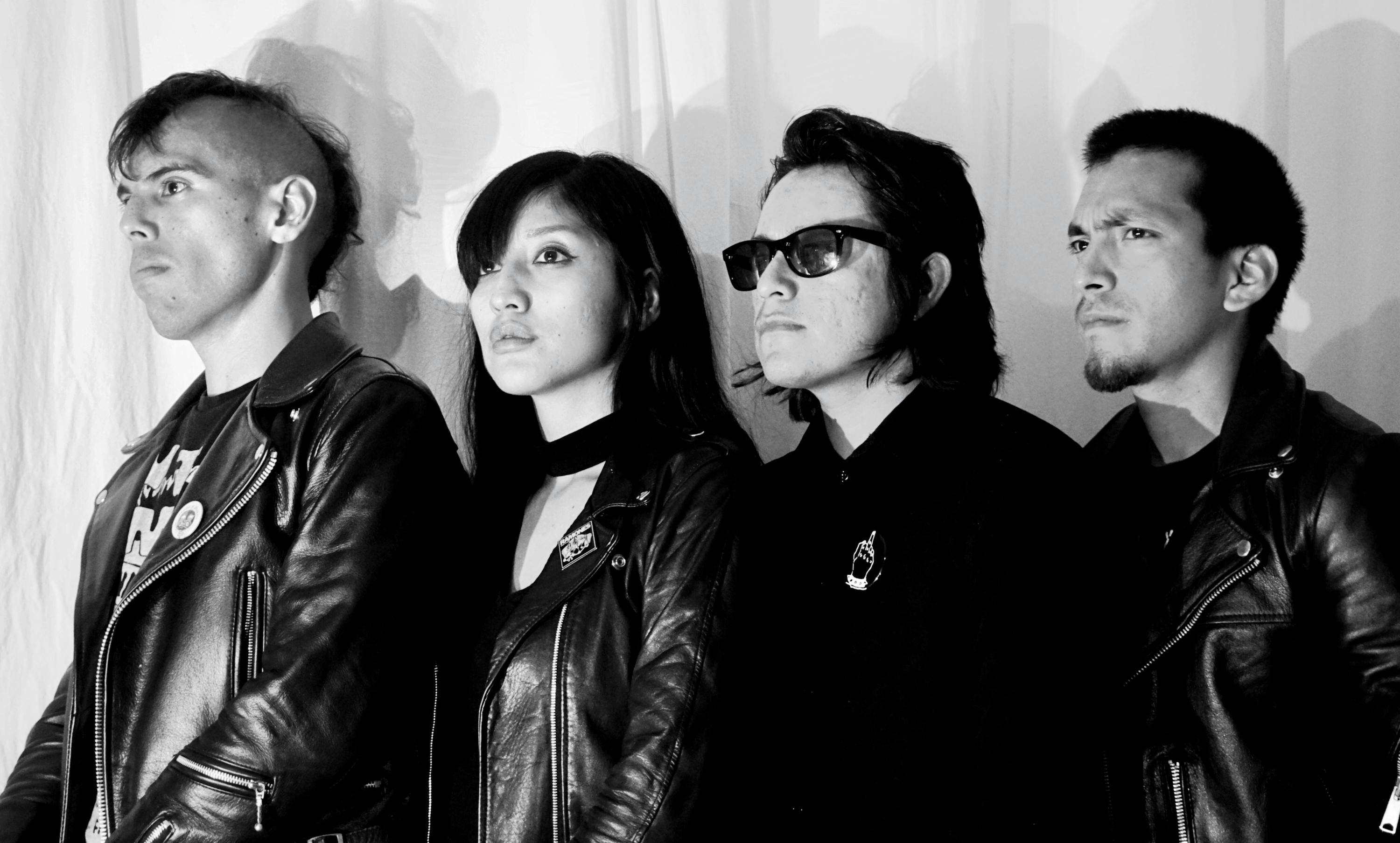Singing in exclusively in Spanish has probably limited their audience, Abarca admits, but it’s another facet of being honest to themselves and their community.
“I feel like I can’t sing in English – my English singing [and] speaking voice is all weird,” he says, in perfectly un-weird English. “‘If only they sang in English’ – I mean, I’ve heard that a couple of times. But it’s like, well, then fuck you, man!”
While still punky and snotty, with songs averaging barely two minutes, Reflejos finds Generacion Suicida exploring nuances within their sound, not least because the now fully-integrated Quezada and Jacobo are infusing the songs with their sometimes Cure-ish or surf-y melodic and textural instincts. And they don’t rule out embracing keys, strings and even sax on future records.
“It’ll be cool to make like a ‘big’ record, even if we do it ourselves,” mulls Quezada, whose shades and beret lend him a convincing Carlos the Jackal air onstage. “I feel like we could do that, even with our style.”
But Generacion Suicida -- all 30 years old -- don’t over-plan or worry about the future. They’ve found that when they get the big picture right, the music follows.
“The first day [on tour], everybody gets really drunk and Elias and Kiwi fight,” chuckles Abarca, the band’s peace-making diplomat and unofficial dad. “For the rest of the tour, nobody drinks!”
Abarca claims that they’ve already turned down two or three offers from major record labels because, while he admits that the financial support would be welcome, his priority is to make music on their own terms (though G.S. did license a song for a Levi’s commercial in order to fund a Japanese tour).
“As long as we’re still family-oriented – really working together, like a family – then I think our music will always be good.”
